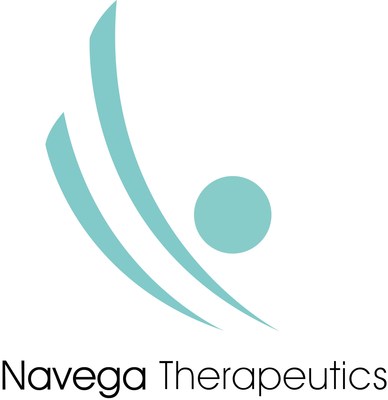|
24.08.2021 19:53:00
|
Navega Therapeutics expands its Scientific Advisory Board with the addition of pain expert, Dr. Stephen Waxman.
SAN DIEGO, Aug. 24, 2021 /PRNewswire/ -- Navega Therapeutics, a San Diego-based biotechnology company developing epigenetic gene therapies, has announced that it is expanding its Scientific Advisory Board ("SAB") to include Dr. Stephen Waxman, MD, PhD.
Dr. Waxman is the Bridget Flaherty Professor of Neurology, Neurobiology, and Pharmacology, and the founder and director of the Neuroscience & Regeneration Research Center at Yale University. Prior to moving to Yale, he worked at Harvard, MIT, and Stanford. In translational leaps from laboratory to humans, he carried out molecule-to-man studies combining molecular genetics, molecular biology, and biophysics to demonstrate the contribution of ion channels to human pain. Prof. Waxman played a major role in an international coalition that identified sodium channel mutations as risk factors for painful peripheral neuropathy and certain other pain disorders. He characterized the gain-of-function mutations in the voltage-gated sodium channel α-subunit gene SCN9A that encodes for NaV1.7 and showed that these mutations are responsible for pain in patients with Inherited Erythromelalgia, which has been one of Dr. Waxman's focus in numerous clinical studies at Yale.
One and a half billion people worldwide suffer from chronic pain, with more than 100 million in the US alone. Furthermore, around 20 million Americans report severe pain that interferes with their daily life. The estimated economic burden of chronic pain, including direct health care costs and indirect costs such as loss of workers productivity, was approximately $560 billion in 2016. The conventional treatment for severe chronic pain is opioid narcotics, but approximately 1 in 4 patients become addicted to opioids, and more than 100 Americans die each day from an opioid overdose. Despite decades of research, there has yet to be a non-addictive, effective therapeutic for severe chronic pain not compromised by severe side effects.
Navega Therapeutics is pursuing a radically different approach based on DNA targeting to treat chronic pain and tackle the opioid epidemic via epigenetic regulation of key genes. Efforts to develop selective small molecule inhibitors targeting NaV1.7 have been hampered due to the high sequence identity between NaV subtypes. While many small-molecule drugs targeting NaV1.7 have been studied, none have reached the clinic. Antibodies have faced a challenge because there is a tradeoff between selectivity and potency due to the antibody binding to a specific (open or closed) conformation of the channel, and with antibody binding not always translating into channel inhibition. Navega Therapeutics' platform is highly specific and long lasting without a permanent modification of the genome.
"It is with excitement that we welcome Dr. Waxman to the Navega team. Dr. Waxman's research has been instrumental in identifying the contribution of ion channels to human pain, including its contribution to Inherited Erythromelalgia," said Dr. Ana Moreno, founder and CEO of Navega Therapeutics. "We look forward to working with Dr. Waxman as we accelerate our efforts into IND-enabling studies."
Fernando Aleman, Navega's CSO, is also enthusiastic about the latest addition to the SAB: "Our promising approach is bringing together the pioneers in the field. Our completely different approach targeting DNA instead of RNA or protein provides multiple advantages over other approaches," Dr. Aleman remarked. "We believe Dr. Waxman participation reflects the seriousness of our science and the disruptive promise of our approach. We will benefit from access to his years of experience and deep expertise as we continue to advance our Erythromelalgia program."
Dr. Waxman has published more than 700 scientific papers. His H-index is 109 and his papers have been cited more than 40,000 times. He has edited nine books, and is the author of Spinal Cord Compression and of Clinical Neuroanatomy (translated into eight languages). Dr. Waxman noted "I am pleased to join the Navega SAB. Navega's DNA-targeting technology differentiates it from other approaches. Given the key role of NaV1.7 in chronic pain, I am confident that muting of NaV1.7 will meet a substantial unmet medical need."
About Navega Therapeutics Inc. | Navega is a preclinical stage company developing epigenetic-regulation gene therapies to tackle common disease. As its first indication, Navega is pursuing a rare disease -Inherited Erythromelalgia- in which patients have chronic pain due to a gain-of-function mutation in the NaV1.7 gene. The same pharmaceutical product will be utilized to reduce chronic pain in other pain disorders. Other indications in Navega's pipeline include neurological and ophthalmic diseases.
![]() View original content to download multimedia:https://www.prnewswire.com/news-releases/navega-therapeutics-expands-its-scientific-advisory-board-with-the-addition-of-pain-expert-dr-stephen-waxman-301361914.html
View original content to download multimedia:https://www.prnewswire.com/news-releases/navega-therapeutics-expands-its-scientific-advisory-board-with-the-addition-of-pain-expert-dr-stephen-waxman-301361914.html
SOURCE Navega Therapeutics
 Der finanzen.at Ratgeber für Aktien!
Der finanzen.at Ratgeber für Aktien!
Wenn Sie mehr über das Thema Aktien erfahren wollen, finden Sie in unserem Ratgeber viele interessante Artikel dazu!
Jetzt informieren!
